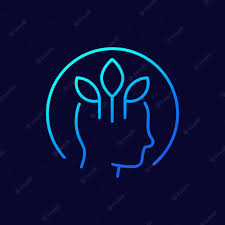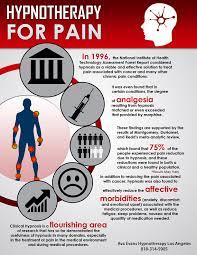Self-Development: Unlocking Your Full Potential
In a fast-paced and ever-changing world, self-development has become more crucial than ever. It is the process of investing in oneself, consciously striving to improve and grow in various aspects of life. Whether it’s personal growth, professional success, or overall well-being, self-development empowers individuals to unlock their full potential and live a fulfilling life.
One of the key benefits of self-development is gaining a deeper understanding of oneself. It involves self-reflection and introspection to identify strengths, weaknesses, values, and aspirations. By knowing ourselves better, we can make informed decisions aligned with our authentic selves. This awareness allows us to set meaningful goals and work towards them with clarity and purpose.
Self-development also involves acquiring new knowledge and skills. Continuous learning not only expands our horizons but also enhances our capabilities. Whether it’s through reading books, attending workshops, or taking courses, learning opens doors to new opportunities and helps us adapt to the changing demands of the world around us. It enables personal growth by fostering creativity, critical thinking, and problem-solving abilities.
Moreover, self-development nurtures resilience and adaptability. Life is full of challenges and setbacks that can leave us feeling overwhelmed or stuck. However, by cultivating resilience through self-development practices such as mindfulness or meditation, we can bounce back from adversity stronger than before. Self-awareness helps us recognize unhelpful patterns or limiting beliefs that may hinder our progress. With this knowledge, we can develop strategies to overcome obstacles and embrace change with a positive mindset.
Self-development also plays a vital role in building healthy relationships. When we invest in ourselves emotionally and mentally, we become better equipped to connect with others authentically. By understanding our own needs and emotions, we can empathize with others more effectively and build stronger bonds based on trust and respect.
It’s important to note that self-development is not a one-size-fits-all journey. Each person’s path is unique, and what works for one individual may not work for another. It requires self-compassion and patience as we navigate through personal growth. It’s about finding the practices, techniques, and approaches that resonate with us and align with our values.
To embark on a self-development journey, start by setting clear goals and defining what success means to you. Break down these goals into smaller, achievable steps to maintain motivation and momentum. Seek out resources, mentors, or coaches who can guide and support you along the way. Surround yourself with a positive and like-minded community that uplifts and inspires you.
Remember that self-development is a lifelong process. Embrace the idea of continuous growth and improvement, always seeking new opportunities to learn, evolve, and expand your horizons. Celebrate your achievements along the way, no matter how small they may seem.
In conclusion, self-development is an empowering journey that allows individuals to unlock their full potential. By investing in oneself through self-reflection, learning, resilience-building, and nurturing relationships, we can lead more fulfilling lives. Embrace the process of self-discovery and growth as you embark on this transformative path towards becoming the best version of yourself.
7 Essential Tips for Self-Development: Achieve Personal Growth and Success
- Set personal goals and track your progress.
- Take time to reflect on your successes and failures.
- Develop a growth mindset and practice self-compassion.
- Challenge yourself with new experiences and learning opportunities.
- Build meaningful relationships with people who inspire you to be better.
- Find ways to stay motivated by focusing on the end goal rather than short-term gratification or failure points along the way
- Prioritize self-care by taking care of your physical, mental, and emotional health needs
Set personal goals and track your progress.
Setting Personal Goals and Tracking Your Progress: The Key to Self-Development
Self-development is a journey that requires direction and focus. One powerful tip to propel your growth is setting personal goals and tracking your progress. By doing so, you create a roadmap for your development and stay motivated along the way.
Setting personal goals provides clarity and purpose. It allows you to define what you want to achieve, whether it’s improving a skill, pursuing a passion, or making positive changes in your life. Clear goals act as beacons that guide your actions and decisions, keeping you on track towards self-improvement.
When setting goals, it’s important to make them specific, measurable, achievable, relevant, and time-bound (SMART). Specificity helps you clearly define what you want to accomplish. Measurability allows you to track progress objectively. Achievability ensures that your goals are realistic and within reach. Relevance ensures that they align with your values and aspirations. Time-bound sets a deadline or timeframe for achieving each goal.
Once you set your goals, it’s crucial to track your progress regularly. Tracking allows you to monitor how far you’ve come and identify areas where adjustments may be needed. It provides a sense of accomplishment as you see yourself moving closer to your desired outcomes.
There are various ways to track progress effectively. One popular method is journaling or keeping a personal development diary. Write down your goals, break them into smaller milestones, and record the actions taken towards achieving them. Reflect on both successes and challenges encountered along the way.
Another effective tool is creating visual representations of progress such as charts or graphs. Seeing visual evidence of how much ground you’ve covered can be incredibly motivating. It also helps identify patterns or trends that can inform future actions.
Additionally, consider using technology-based tools like habit trackers or goal-setting apps. These apps provide reminders, allow you to input progress data easily, and offer insights into your development journey.
Remember, tracking progress is not solely about achieving the end result. It’s also about celebrating milestones and acknowledging the effort you put into your self-development. Embrace the process, even if there are setbacks or deviations from the original plan. Adaptability and flexibility are key as you navigate your personal growth journey.
In conclusion, setting personal goals and tracking your progress is a fundamental tip for self-development. It provides direction, motivation, and a sense of achievement along the way. By following the SMART framework and utilizing tools like journaling or technology-based trackers, you can stay focused on your goals and continuously grow into the best version of yourself. So set those goals, track your progress, and watch yourself transform into the person you aspire to be.
Take time to reflect on your successes and failures.
Taking Time to Reflect: The Power of Self-Development
In the pursuit of self-development, one often focuses on setting goals, acquiring new skills, and overcoming challenges. While these aspects are crucial, there is another equally important practice that often goes overlooked – taking time to reflect on our successes and failures.
Reflecting on our experiences allows us to gain valuable insights into our journey of self-development. When we take a moment to pause and look back, we can celebrate our achievements and acknowledge the progress we have made. Recognizing our successes not only boosts our self-confidence but also serves as a reminder of what we are capable of accomplishing.
Equally important is reflecting on our failures. Failure is an inevitable part of life, and rather than being discouraged by it, we can use it as an opportunity for growth. By examining the reasons behind our setbacks, we can identify areas for improvement and learn valuable lessons that can guide us towards future success. Embracing failure as a stepping stone towards personal growth allows us to develop resilience and adaptability.
Reflection also helps us gain clarity about our values, passions, and purpose. It provides an opportunity to assess whether our current path aligns with who we truly are and what we want to achieve. Through introspection, we can identify areas where we may have deviated from our authentic selves or where adjustments need to be made in order to live a more fulfilling life.
To incorporate reflection into your self-development journey, set aside dedicated time for introspection. Find a quiet space where you can be alone with your thoughts – this could be through journaling, meditation, or simply taking a walk in nature. Reflect on your recent accomplishments and failures, asking yourself what worked well and what could have been done differently.
During this reflective process, be honest with yourself without judgment or self-criticism. Instead of dwelling on mistakes or missed opportunities, focus on extracting lessons that will propel you forward. Celebrate your successes and acknowledge the growth that has occurred, no matter how small it may seem.
Taking time to reflect on your successes and failures is a powerful tool for self-development. It allows you to gain valuable insights, make informed decisions, and stay aligned with your true self. By incorporating this practice into your routine, you will continually grow and evolve on your journey towards becoming the best version of yourself.
Develop a growth mindset and practice self-compassion.
Developing a Growth Mindset and Practicing Self-Compassion: Keys to Personal Growth
In the pursuit of self-development, two essential elements often go hand in hand: cultivating a growth mindset and practicing self-compassion. These powerful tools can transform the way we approach challenges, setbacks, and our own personal growth journey.
A growth mindset is the belief that our abilities and intelligence can be developed through dedication, effort, and learning. It’s about embracing challenges as opportunities for growth rather than seeing them as obstacles. When we have a growth mindset, we view failures as stepping stones to success and setbacks as valuable lessons that help us improve.
To develop a growth mindset, start by reframing your thoughts. Instead of saying “I can’t do it,” replace it with “I haven’t learned how to do it yet.” Embrace challenges with curiosity and see them as chances to expand your knowledge and skills. Emphasize the process of learning rather than focusing solely on the end result. By adopting this perspective, you open yourself up to endless possibilities for personal development.
Alongside a growth mindset, practicing self-compassion is equally important. Self-compassion involves treating ourselves with kindness, understanding, and acceptance when faced with difficulties or mistakes. It means acknowledging our imperfections without harsh self-judgment or criticism.
To practice self-compassion, start by cultivating awareness of your inner dialogue. Notice when you’re being self-critical or judgmental and consciously choose to replace those thoughts with kinder ones. Treat yourself as you would treat a dear friend who is going through a tough time – with empathy and compassion.
Remember that setbacks are inevitable in any journey of personal growth. When faced with challenges or failures, remind yourself that no one is perfect and that making mistakes is part of the learning process. Treat these moments as opportunities for growth rather than reasons for self-doubt.
By combining a growth mindset with self-compassion, you create a powerful foundation for personal growth. You develop resilience, learn from your experiences, and nurture a positive relationship with yourself. This mindset shift allows you to embrace challenges with enthusiasm and approach your self-development journey with kindness and patience.
As you embark on your path of self-development, remember that it’s not about reaching some predetermined destination of perfection. It’s about embracing the process, learning from both successes and failures, and continuously evolving into the best version of yourself.
So, cultivate a growth mindset that embraces challenges and view setbacks as opportunities for growth. Practice self-compassion by treating yourself with kindness and understanding throughout your journey. With these powerful tools in hand, you’ll be well-equipped to navigate the ups and downs of personal growth while fostering a positive relationship with yourself along the way.
Challenge yourself with new experiences and learning opportunities.
Challenge Yourself: Embrace New Experiences and Learning Opportunities for Self-Development
In the pursuit of self-development, one of the most powerful tips is to challenge yourself with new experiences and learning opportunities. Stepping out of your comfort zone and embracing the unknown can be intimidating, but it is through these challenges that personal growth truly thrives.
When you expose yourself to new experiences, you open the door to endless possibilities. Trying something different, whether it’s learning a new skill, exploring a new hobby, or immersing yourself in a different culture, expands your horizons and broadens your perspective. It pushes you to break free from routine and discover hidden talents or passions you never knew existed.
New experiences also foster personal development by cultivating resilience and adaptability. When faced with unfamiliar situations, you are forced to navigate through uncertainty and overcome obstacles. This process builds resilience as you learn to bounce back from setbacks and find solutions to unexpected challenges. It strengthens your ability to adapt to change, an essential skill in today’s rapidly evolving world.
Learning opportunities go hand in hand with new experiences. Engaging in continuous learning keeps your mind sharp and feeds your curiosity. It allows you to acquire new knowledge, skills, and perspectives that can enhance various aspects of your life. Whether it’s taking up a course, attending workshops or seminars, or even reading books on topics outside your comfort zone, each learning opportunity adds value to your personal growth journey.
By challenging yourself with new experiences and learning opportunities, you also foster personal confidence and self-belief. As you conquer unfamiliar territory or master a new skill, you prove to yourself that you are capable of growth and achievement. This boost in confidence transcends into other areas of life as well, empowering you to take on bigger challenges and reach for higher goals.
It’s important to remember that challenging yourself doesn’t mean diving headfirst into overwhelming situations without preparation. Start small by setting achievable goals and gradually increase the difficulty level as you gain confidence and experience. Break down big challenges into smaller, manageable steps to maintain momentum and motivation.
Seek out opportunities that align with your interests and values. Reflect on what areas of personal development you want to focus on and explore opportunities that cater to those needs. Surround yourself with a supportive network of like-minded individuals who can encourage and inspire you along the way.
In conclusion, challenging yourself with new experiences and learning opportunities is a powerful catalyst for self-development. Embrace the unknown, step out of your comfort zone, and watch as you grow in ways you never thought possible. Remember, personal growth happens outside of your comfort zone, so embrace the challenges that come your way and unlock your true potential.
Build meaningful relationships with people who inspire you to be better.
In the journey of self-development, the people we surround ourselves with play a significant role in our growth and progress. Building meaningful relationships with individuals who inspire us to be better can have a profound impact on our personal and professional development.
When we connect with people who possess qualities, values, or achievements that we admire, it ignites a spark within us. Their presence and influence can motivate us to push beyond our limits, challenge ourselves, and strive for greatness. These inspiring individuals serve as role models, showing us what is possible and encouraging us to reach for our own potential.
One of the key benefits of surrounding ourselves with inspiring people is the positive energy they bring into our lives. Their enthusiasm, passion, and drive are contagious. Being in their presence can uplift our spirits, boost our motivation, and fuel our own aspirations. We are more likely to adopt their positive mindset and embrace a growth-oriented attitude towards life.
Meaningful relationships with inspiring individuals also provide valuable learning opportunities. By observing their actions, listening to their stories, or engaging in conversations with them, we gain insights and wisdom that can accelerate our own personal growth. We can learn from their experiences, mistakes, and successes. They may offer guidance or share resources that can help us navigate challenges or seize new opportunities.
Moreover, building relationships with inspiring people creates a supportive network that nurtures accountability and growth. When we have like-minded individuals around us who believe in our potential and cheer us on, it becomes easier to stay committed to our goals. They provide encouragement during difficult times and celebrate our achievements along the way. This sense of community fosters resilience and helps us stay focused on becoming the best version of ourselves.
It’s important to note that building meaningful relationships is a two-way street. While it’s beneficial for us to seek out inspiring individuals who uplift us, it’s equally important for us to be a source of inspiration and support for others. By sharing our own journey, knowledge, and experiences, we contribute to the growth and development of those around us. We can create a positive ripple effect by inspiring others to reach their full potential as well.
In conclusion, building meaningful relationships with people who inspire us to be better is a powerful tip for self-development. Their presence, energy, and wisdom can propel us forward on our personal growth journey. Seek out individuals who embody qualities or achievements that you admire and connect with them. Embrace the learning opportunities they provide and nurture these relationships with care. Together, we can create a supportive network that encourages continuous growth and empowers each other to become the best versions of ourselves.
Find ways to stay motivated by focusing on the end goal rather than short-term gratification or failure points along the way
Staying Motivated: The Power of Focusing on the End Goal
When it comes to self-development, staying motivated is key. It can be challenging to maintain enthusiasm and drive when faced with obstacles or setbacks along the way. However, one powerful tip for staying motivated is to shift our focus from short-term gratification or failure points and instead concentrate on the end goal.
Often, we get caught up in the immediate rewards or instant gratification that certain actions bring. While these may provide temporary satisfaction, they can distract us from the bigger picture and hinder our progress towards long-term goals. By redirecting our attention towards the ultimate objective, we gain a renewed sense of purpose and determination.
Focusing on the end goal allows us to see beyond temporary setbacks or failures. It helps us recognize that these are merely stepping stones on our journey towards success. Instead of dwelling on momentary disappointments, we can view them as valuable lessons and opportunities for growth.
By keeping our eyes fixed on the end goal, we tap into our intrinsic motivation. We remind ourselves why we started this journey in the first place, what drives us, and what we hope to achieve. This internal motivation becomes a powerful force that propels us forward even when faced with challenges.
Moreover, focusing on the end goal helps us maintain a positive mindset. It enables us to visualize success and envision ourselves achieving what we set out to do. This positive outlook fuels optimism and resilience, allowing us to bounce back from setbacks with renewed determination.
To implement this tip effectively, it’s important to break down your end goal into smaller milestones or targets along the way. These milestones serve as checkpoints that keep you motivated and provide a sense of accomplishment as you make progress. Celebrate each milestone reached while always keeping your gaze fixed on the ultimate destination.
Additionally, surrounding yourself with reminders of your end goal can be highly beneficial. Create visual representations such as vision boards or write down your goals and place them somewhere visible. These reminders serve as constant motivation, keeping your aspirations at the forefront of your mind.
Remember, self-development is a journey that requires dedication, perseverance, and staying motivated. By shifting your focus from short-term gratification or failure points to the end goal, you empower yourself to overcome obstacles and keep moving forward. Embrace the power of visualization, break down your goals into manageable steps, and celebrate each milestone achieved along the way. Stay focused on the bigger picture and let it drive you towards success in your self-development journey.
Prioritize self-care by taking care of your physical, mental, and emotional health needs
Prioritize Self-Care: Nurturing Your Physical, Mental, and Emotional Health
In the hustle and bustle of everyday life, it’s easy to neglect our own well-being. However, prioritizing self-care is essential for personal growth and overall happiness. Taking care of your physical, mental, and emotional health needs is a powerful way to invest in yourself and enhance your self-development journey.
Physical health forms the foundation of our well-being. It’s crucial to prioritize activities that promote a healthy body. Regular exercise not only improves physical fitness but also boosts mood and reduces stress. Whether it’s going for a run, practicing yoga, or engaging in any form of physical activity you enjoy, make time for it regularly. Additionally, nourishing your body with nutritious food and getting enough sleep are vital components of self-care. Listen to your body’s needs and provide it with the care it deserves.
Equally important is tending to your mental health. Our minds need rest, stimulation, and care just like our bodies do. Engage in activities that promote mental well-being such as reading books, solving puzzles or engaging in creative hobbies. Take breaks from work or responsibilities to recharge your mind. Practice mindfulness or meditation to cultivate a sense of calm and clarity amidst the chaos of daily life. Seek out opportunities for personal growth by learning new skills or pursuing interests that expand your knowledge and perspective.
Emotional health is often overlooked but plays a significant role in self-development. Acknowledge and express your emotions in healthy ways rather than suppressing them. Create space for self-reflection to understand your feelings better and identify any patterns or triggers that may need attention. Surround yourself with positive influences such as supportive friends or mentors who uplift you emotionally. Engage in activities that bring you joy or help you unwind like spending time with loved ones, pursuing hobbies you love or practicing gratitude.
Remember that self-care is not selfish; it’s an act of self-love and self-preservation. By prioritizing your physical, mental, and emotional health needs, you are better equipped to navigate life’s challenges and pursue personal growth. Taking care of yourself allows you to show up as your best self in all areas of life – relationships, work, and personal goals.
Start by incorporating small self-care practices into your daily routine. It can be as simple as taking a few minutes each day for deep breathing exercises or going for a walk in nature. Schedule regular “me-time” on your calendar to engage in activities that replenish your energy and bring you joy. Remember that self-care looks different for everyone, so find what works best for you.
Prioritizing self-care is an ongoing commitment. It requires conscious effort and the willingness to make yourself a priority. Embrace the journey of nurturing your physical, mental, and emotional well-being as an integral part of your self-development process. By doing so, you’ll not only enhance your overall quality of life but also empower yourself to reach new heights in personal growth and fulfillment.




